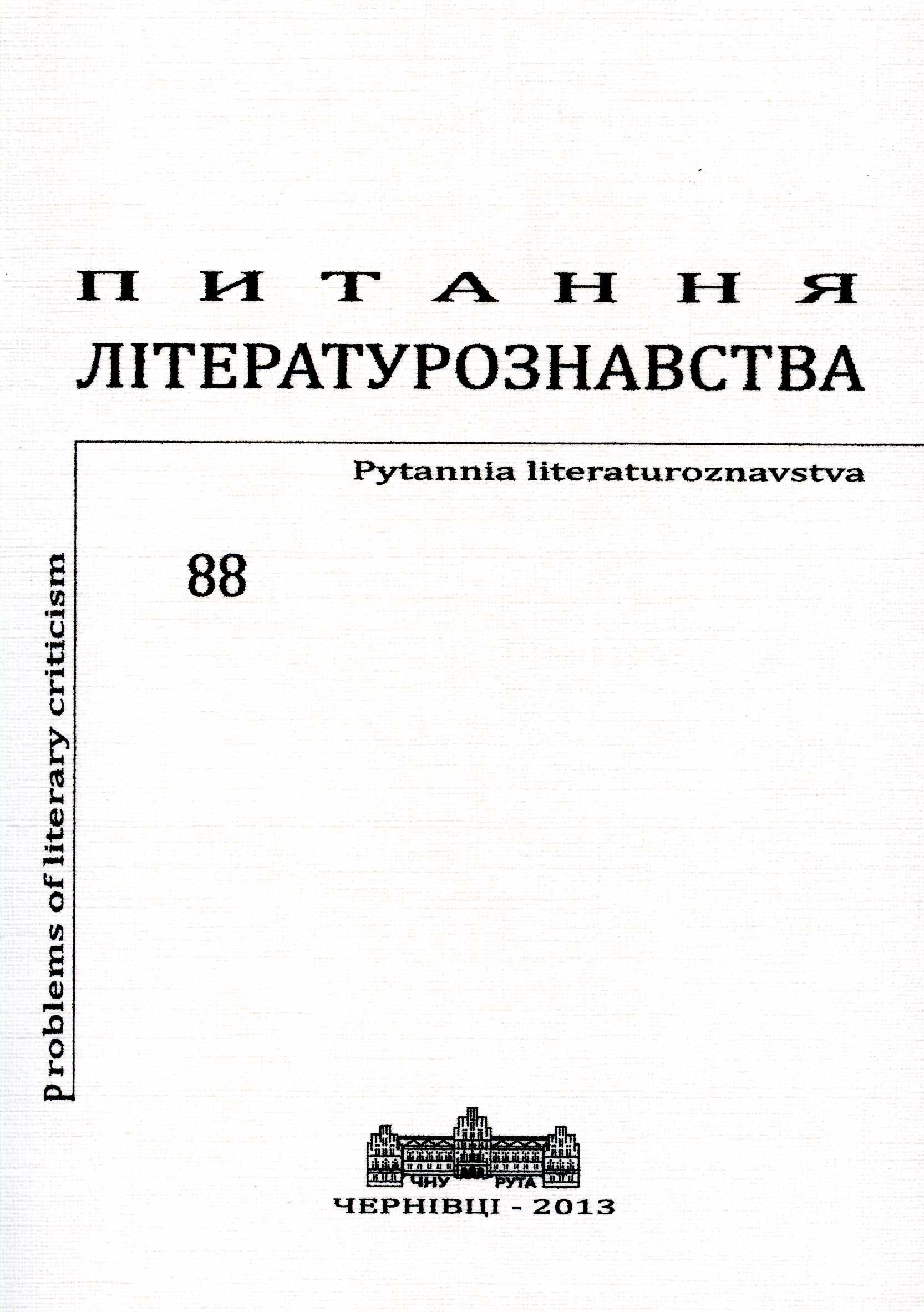Античність у ліриці Євгена Маланюка: рецепція й особливості інтерпретації
The Antiquity in Lyrics by Eugen Malaniuk: Reception and Specifics of Interpretation
Author(s): Oksana GalchukSubject(s): Language and Literature Studies, Studies of Literature, Theory of Literature
Published by: Чернівецький національний університет імені Юрія Федьковича
Keywords: antiquity; intertext; reception; transformation; mytheme; Eugen Malaniuk;
Summary/Abstract: The purpose of this article is to determine the reception’s specifics of the Antique text and to observe its role in historiosophy and esthetics of Eugen Malaniuk. Using contact and comparative methods we analyzed his lyrics and elucidated that the author had put in the basis of his poetic historiosophy his comprehension of concepts “Hellas” and “Rome”. In Malaniuk’s interpretation these concepts became the metaphors of past and future of Ukraine (“Polittia”, “Variaz′ka vesna”, “Liuds′ke”, “Epiloh”, “Uryvok”, etc.). Its present he comprehend transforming the antique maxim “world – theatre” (“Teatr, Doba”, “Odyn vechir”, “V maіbutnie”, “Pobachennia”, etc.). This comprehension resulted into quotations in epigraphs and text (“Tertia vigilia”, “Campus Martius”, “Ars poetica”, “Ave, Caesar…”, “Post scriptum”, etc.), reminiscence and allusions of antique plots and motives (“Martivs′ki idy”, “Osinnii Stiks”, “Muza”, “Bezkrovna Muza…”, “Perykl”, etc.), explicit (“Prysviatni strofy”, “Doba”, “Bezsonnia”, “Tak dovho buv dvolykyi i dvoiakyi…”, “Nostal′hiia”) and implicit (“Proloh”) embodiment of “text in text” structure and transformation of the lyrical hero into images of the prototext’s characters (Odysseus, Theseus, Aeneas). The research revealed that transplantation of the antique text by the poet caused the uprise of the “Prague” interpretation variant, distinctive features of which are synthesis of neoclassic and neoromantic perception of the Classic tradition, focus on the Baroque experience of its reception, reading through the historisophical prism. The study “Malaniuk and Antiqity” creates a perspective of separating and researching masculine, Rome’s rationality oriented, with Apollo’s principles domineering (Ol′zhych, Klen); and feminine, with Dionysus’ element prevalence in dialogue with emotional and sensual archaic of Ancient Greek (Olena Teliha) interpretation variants of Greco-Roman fiction heritage as components of neoclassical interpretation model of Ukrainian antiquity of late modernism era.
Journal: Питання літературознавства
- Issue Year: 2013
- Issue No: 88
- Page Range: 274-285
- Page Count: 12
- Language: Ukrainian

